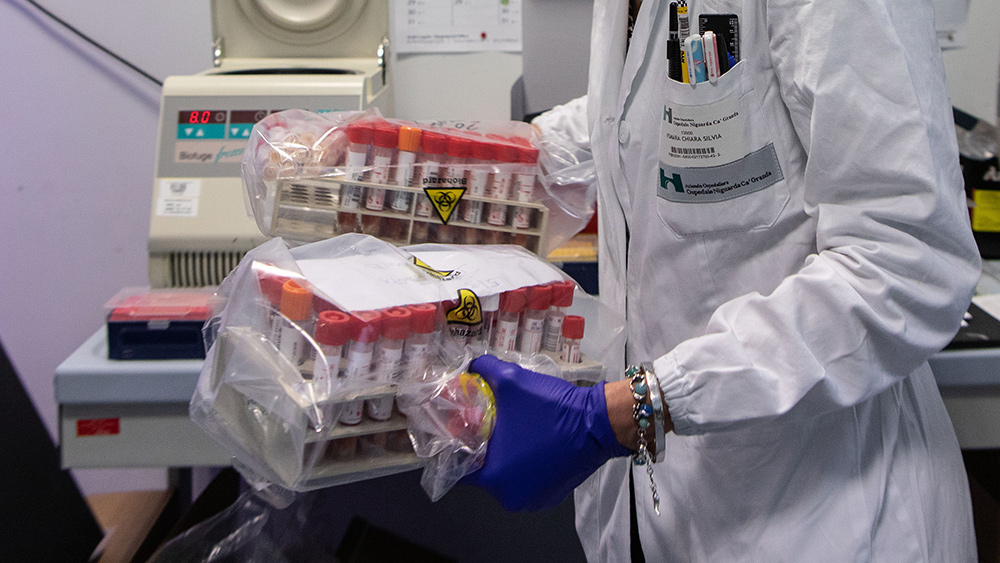Study: Eating 2 servings of avocados weekly helps reduce heart disease risk
04/05/2022 / By Zoey Sky

From salads to smoothies, avocado is a staple in balanced diets. This superfood contains healthy fats and various vitamins and minerals.
According to a study published in the Journal of the American Heart Association, eating two servings of avocados weekly can help lower your risk of heart disease.
In the 30-year study, more than 110,000 health professionals discovered that volunteers who consumed at least two servings of avocado a week had a lower risk of cardiovascular disease compared to those who rarely ate avocados.
Earlier clinical trials have shown that avocados have a positive impact on cardiovascular risk factors such as high cholesterol. Avocados are a source of dietary fiber, unsaturated fats — especially monounsaturated fat (“good” fats) — and other beneficial components that are linked to good heart health.
Experts said that this is the first, large prospective study that proves a positive link between higher avocado consumption and lower cardiovascular events, like coronary heart disease and stroke.
Lorena S. Pacheco, the lead author of the study and a postdoctoral research fellow in the nutrition department at the Harvard T.H. Chan School of Public Health in Boston, said that the study proves that consuming plant-sourced unsaturated fats can improve diet quality and is an important part of cardiovascular disease prevention.
Pacheco added that the findings are important since data from the U.S. Department of Agriculture shows that the consumption of avocados has greatly increased in America in the last 20 years.
Cardiovascular risk factors and overall diet
For 30 years, researchers followed over 68,780 women, aged 30 to 55, from the Nurses’ Health Study, and more than 41,700 men, aged 40 to 75, from the Health Professionals Follow-up Study. All the volunteers were free of cancer, coronary heart disease and stroke at the start of the study and residing in the United States.
The experts recorded 9,185 coronary heart disease events and 5,290 strokes during more than 30 years of follow-up. They also reviewed the diets of the volunteers using food frequency questionnaires given at the beginning of the study and after every four years.
The researchers also determined avocado intake based on a questionnaire that asked about the amount consumed and frequency. Half an avocado or half a cup of avocado was considered one serving.
The analysis revealed that:
- After considering a wide range of cardiovascular risk factors and overall diet, the volunteers who consumed at least two servings of avocado weekly had a 16 percent lower risk of cardiovascular disease and a 21 percent lower risk of coronary heart disease, compared to those who did not or rarely ate avocados.
- Statistical modeling also showed that replacing half a serving daily of foods like butter, cheese, egg, margarine, yogurt or processed meats like bacon with the same amount of avocado was linked to a 16 to 22 percent lower risk of cardiovascular disease events.
- Replacing half a serving a day of avocado with the same amount of olive oil, nuts and other plant oils had no additional benefit.
- There were no significant links observed between stroke risk and how much avocado was consumed.
The findings can be used to give additional guidance for healthcare professionals to share. Pacheco explained that advising people to “replace certain spreads and saturated fat-containing foods” like cheese and processed meats with avocado is something physicians and other healthcare practitioners like registered dietitians can do when they meet with patients, especially since avocado is a popular food.
The study findings are also in line with the American Heart Association’s guidance to follow the Mediterranean diet, an eating plan that includes a lot of beans, fish, fruits, grains, vegetables and other healthy foods and plant-based fats like olive, sesame and other non-tropical oils. (Related: Next time you eat an avocado, don’t throw out the pit: It’s great for treating inflammation.)
Cheryl Anderson, chair of the American Heart Association’s Council on Epidemiology and Prevention, said that the findings are significant because healthy eating habits are crucial for cardiovascular health.
Unfortunately, it can be difficult for many Americans to maintain healthy eating patterns.
Anderson, who is also a professor and dean of the Herbert Wertheim School of Public Health and Human Longevity Science at the University of California San Diego, highlighted the importance of effective strategies to improve the public’s intake of AHA-recommended healthy diets, like the Mediterranean diet, that are full of nutritious fruits and vegetables.
No single food can help improve your eating habits, but the study suggests that avocados offer some health benefits. This is promising because avocadoes are popular among different people in America and it is “accessible, desirable and easy to include in meals.”
Note that the study is observational and a direct cause and effect cannot be proved. Two other limitations of the research involve data collection and the composition of the study population.
Additionally, the study analyses may be affected by measurement errors since dietary consumption was self-reported. Volunteers were mostly white nurses and health care professionals, so their results may not apply to other groups.
If you want to eat more avocados, serve them seasoned with salt, pepper and your preferred spices. You can also eat avocados for breakfast by cutting them in half and baking them with one egg.
Another option is to add diced avocados to scrambled eggs. If you prefer something sweeter, use avocados to make pancakes, smoothies or homemade ice cream.
Improve your eating habits and eat at least two servings of avocados every week to boost your heart health.
Watch the video below to learn about the health benefits of avocados.
This video is from the Natural News channel on Brighteon.com.
More related stories:
7 Healthy snacks for those who get the late-night munchies.
10 Scrumptious ways to enjoy an avocado.
Consume this superfood – in moderation – to naturally curb your appetite.
Another of avocados’ superpowers: Resisting the effects of leukemia.
Sources include:
Submit a correction >>
Tagged Under:
#nutrition, avocado, cardiovascular disease, food cures, food is medicine, food science, Fresh, fruits, functional food, heart disease, heart health, natural cures, natural medicine, organics, prevention, research
This article may contain statements that reflect the opinion of the author




















